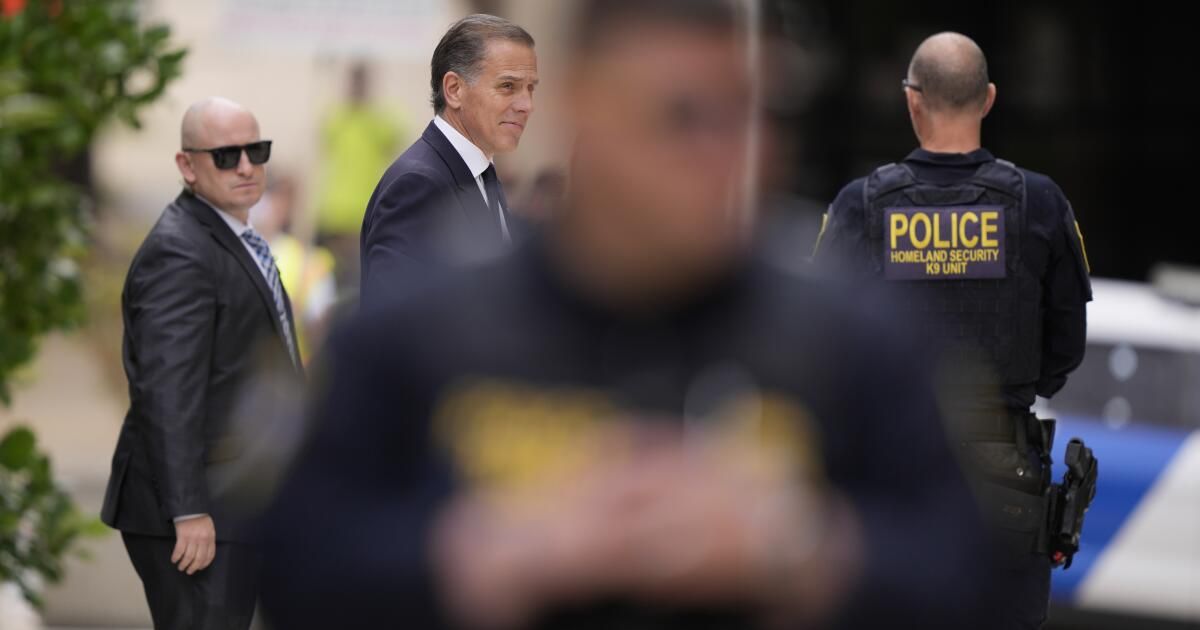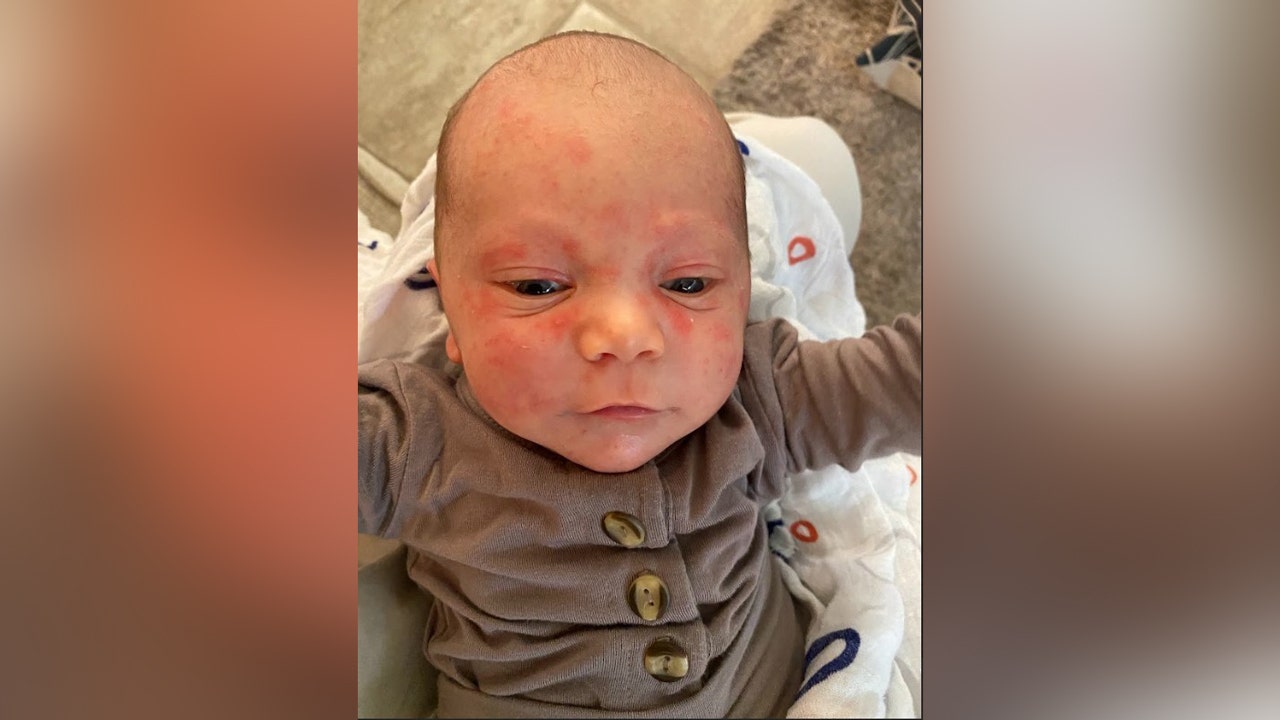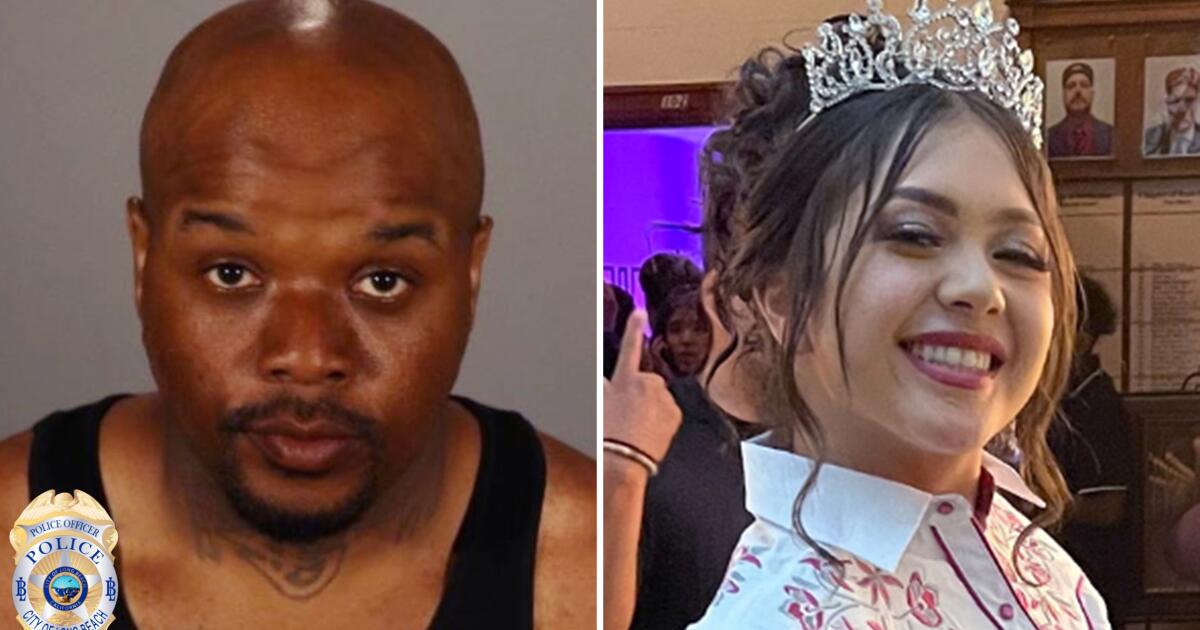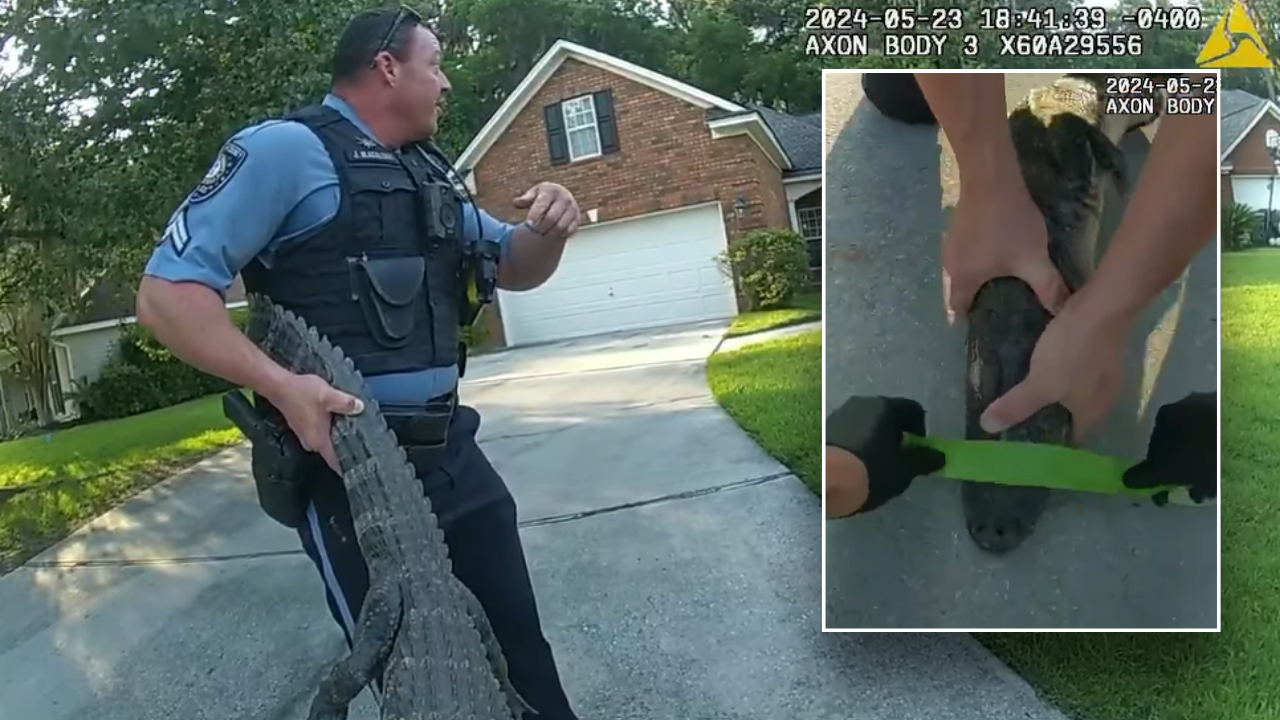Hunter Biden, the president's son, was convicted Tuesday of illegally purchasing and possessing a gun while addicted to crack cocaine.
The guilty verdict, handed down by a federal jury in Delaware after about three hours of deliberations, capped a weeklong trial in which prosecutors elicited testimony from Biden's ex-wife, an ex-girlfriend and his sister-in-law turned lover. who spoke in graphic detail about her addiction to drugs and alcohol, with First Lady Jill Biden often sitting in the front row.
Biden was on trial for three felonies and the jury convicted him of all three: lying on a federal background check form about his crack addiction to purchase a Colt revolver, giving a false statement to a federal firearms dealer, and possess a weapon. being a user of illicit drugs.
As Judge Maryellen Noreika's clerk read the verdict, Biden remained impassive. He then kissed his wife, Melissa, and hugged his attorney, Abbe Lowell.
The procedure was quick and the first lady arrived at the court only once it was concluded. Wearing sunglasses, she walked to the room where her son was, along with other family members and her legal team.
In an election year, the verdict would surely be seized upon by political opponents of Hunter's father, President Biden, and interpreted as a victory by Republican leaders who last year criticized a plea deal on similar charges. The deal fell apart during questioning by Noreika, the same judge who presided over the trial, and paved the way for the indictment on the weapons charges.
A second criminal trial against Hunter Biden is scheduled for September in Los Angeles, where the Malibu resident faces federal charges of tax evasion and failing to pay his taxes on time.
Biden's conviction comes less than two weeks after his father's presidential election opponent, Donald Trump, was convicted by a New York jury of falsifying business records in a scheme to illegally influence the 2016 election through silence payments to a porn actor who said the two had sex.
Testimony in the Hunter Biden gun case focused largely on Biden's response to a question on the October 12, 2018 background check form, which asked: “Are you an illegal user or addict of Is marijuana or any depressant, stimulant, a narcotic or any other controlled substance?”
Hunter checked “No.”
Lowell, the defense attorney, emphasized the limited evidence of Biden's drug use at the time he purchased the revolver, that the gun dealer did not perceive him as under the influence or glassy-eyed, and that no witnesses saw him. consuming drugs in the days after, when he already owned the gun.
Lowell maintained that the gun was never fired and remained locked up until Hunter's brother's widow, Hallie Biden, found it on the morning of Oct. 23, 2018, and, in a panic, discarded it in a dumpster outside a store. grocery store nearby. Hunter, who was dating Hallie at the time, urged her to get the gun back once she discovered it was missing, asking her, “Are you crazy?”
But when Hallie Biden returned to the supermarket, the gun was no longer in the trash can and Hunter told her to contact police.
“It is time to end this case,” Lowell said Monday in his closing argument.
But prosecutors told jurors there was “overwhelming evidence” of Hunter Biden's drug use in the years before and months after the gun purchases.
“If this evidence did not establish that Hunter Biden is a crack addict and an illegal user, then no one is a crack addict and an illegal user,” said Asst. Special prosecutor Derek Hines in his closing argument.
Hunter's ex-wife, Kathleen Buhle, testified that she found a crack pipe in 2015 in his home and that he regularly searched his car for drug paraphernalia. Zoe Kestan, a former girlfriend, told jurors about the night she met Hunter at a Manhattan gentlemen's club, where she worked at the time.
Within minutes of going into a private room with him in 2018, she recalled, she began smoking crack. That night they began a relationship on both coasts in which the couple took refuge in a series of luxury hotels (the SoHo Grand, the Mercer, the Four Seasons in Manhattan, the Chateau Marmont and the Roosevelt in Hollywood), where he abused the crack every 20 minutes and summoned the traffickers. to feed his habit, Kestan testified.
Hallie Biden's turn on the witness stand may have proven the most critical.
Prosecutors noted that in response to their phone calls and text messages asking where he was in mid-October 2018, two days after purchasing the gun, Hunter responded that he was “smoking crack” in downtown Wilmington.
Hallie Biden testified that she saw Hunter Biden late at night or early in the morning on October 23, 2018 and that he seemed exhausted. Inside her truck, she said, she discovered drug paraphernalia and “remnants” of crack cocaine, along with the gun. She put the gun inside a leather bag that she said she found in her vehicle, the same bag that federal investigators examined last year and found traces of cocaine.
During Lowell's interrogation, Hallie Biden's memory seemed shaky at times: She couldn't say what “paraphernalia” she found in the car and acknowledged that Hunter often lied to her about his whereabouts. She also said that she did not see Hunter Biden use drugs in this period.
But his testimony appeared to undermine defense lawyers' claim that Hunter Biden was sober when he possessed the Colt revolver.
“He said he was 'smoking crack,'” Hines reminded jurors in his closing argument. Pointing to this and Hunter Biden's candid 2021 memoir, “Beautiful Things,” which offers a scathing account of his crack addiction and subsequent recovery, Hines said: “Believe the words of his book because he knew… it was an addict and an illegal user.”












